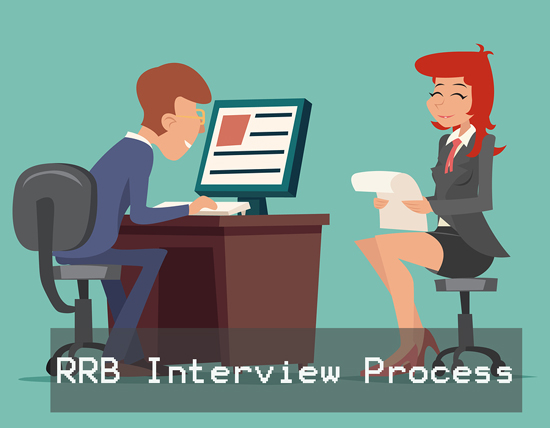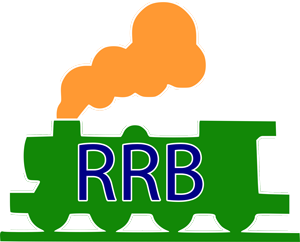Railway Recruitment Board (RRB) is one of the largest recruiting authority in India. It announces and recruits large no. of people in different departments to fill the vacant positions of such departments under different zones every year. RRB selection process comprises of four stages viz. Online/Written Examination, Medical Test, Document Verification & Personal Interview. In this process, RRB conducts exam for recruiting employees under different departments. The candidates who are qualified in the written examination will be called for medical test & document verification. The candidates who qualified in all these tests are called for interview which is the last stage of selection process. Now let’s make a look for the process of RRB Interview process.

RRB Interview Process
In general, this is the final stage of selection process and is sometimes considered as a typical process. The candidates who qualified in all the stages arrive this final stage. Even though the candidates qualifies in all the stages, they find terrific to face an interview. Here are some tips for the candidates who are going to face an interview. Just go through.
Tips to face an Interview
- Dress for the job or company:
It is important to know what to wear to an interview and to be well-groomed. Formal wear is apt for facing an interview. An ironed formal wear gives a dignified look and makes the candidate look impressive. If possible, the candidate can call to find out about the company dress code before the interview.
- Listen:
From the very beginning of the interview, your interviewer might give you information, either directly or indirectly. If you don’t hear it, you might miss a major opportunity. Good communication skills include listening and letting the person know you heard what was said. Observe your interviewer, and match that style and pace.
- Don’t talk too much:
Telling the interviewer more than he needs to know could be a fatal mistake. When you have not prepared ahead of time, you may ramble when answering interview questions, sometimes talking yourself right out of the job. Prepare for the interview by reading through the job posting, matching your skills with the position’s requirements and relating only that information.
- Don’t be too familiar:
The interview is a professional meeting to talk business. This is not about making a new friend. Your level of familiarity should mimic the interviewer’s demeanor. It is important to bring energy and enthusiasm to the interview and to ask questions, but do not overstep your place as a candidate looking for a job.
- Use appropriate language:
It’s given that you should use professional language during the interview. Be aware of any inappropriate slang words or references to age, race, religion, politics or sexual orientation—these topics could send you out the door very quickly.
- Don’t be cocky:
Attitude plays a key role in your interview success. There is a fine balance between confidence, professionalism and modesty. Even if you’re putting on a performance to demonstrate your ability, overconfidence is as bad, if not worse, as being too reserved.
- Take care to answer the questions:
When interviewers ask for an example of a time when you did something, they are asking behavioral interview questions, which are designed to elicit a sample of your past behavior. If you fail to relate a specific example, you not only don’t answer the question, but you also miss an opportunity to prove your ability and talk about your skills.
- Ask questions:
When asked if they have any questions, most candidates answer, “No.” Wrong answer. Part of knowing how to interview is being ready to ask questions that demonstrate an interest in what goes on in the company. Asking questions also gives you the opportunity to find out if this is the right place for you. The best questions come from listening to what you’re asked during the interview and asking for additional information.
- Don’t appear desperate:
When you interview with the “please, please hire me” approach, you appear desperate and less confident. Reflect the three Cs during the interview: cool, calm and confidence. You know you can do the job; make sure the interviewer believes you can, too.
Railway RRB Interview Questions & Answers
Interview questions comprises mainly on general knowledge, communication skills and behavioral approaches. Let’s look for some of the interview questions and the process of answering the questions.
1. Who is credited to have laid the railway tracks in India?
Answer: Lord Dalhousie
2. Under whom, the Indian railway was in the beginning?
Answer: Private sector
3. Some trains were under provinces at the time of independence, when did they merge with Indian railway?
Answer: In 1950
4. When did Indian railway nationalize?
Answer: In 1950
5. How many members including chairman are there in railway Board?
Answer: Five
6. When was railway budget separated on the basis of Acworth committee, from the general budget?
Answer: In 1924–25
7 The rail budget was put to direct relay on the television for the first time on?
Answer: 24 March, 1994.
8. Which rail minister tabled the budget maximum numbers of time?
Answer: Sh. Jagjivan Ram.
9. To make water available in the train, by what name water was marketed?
Answer: Rail Neer
10. How much money was earmarked for railway during first five year plan?
Answer: Rs.423 crore
All The Best..!!
